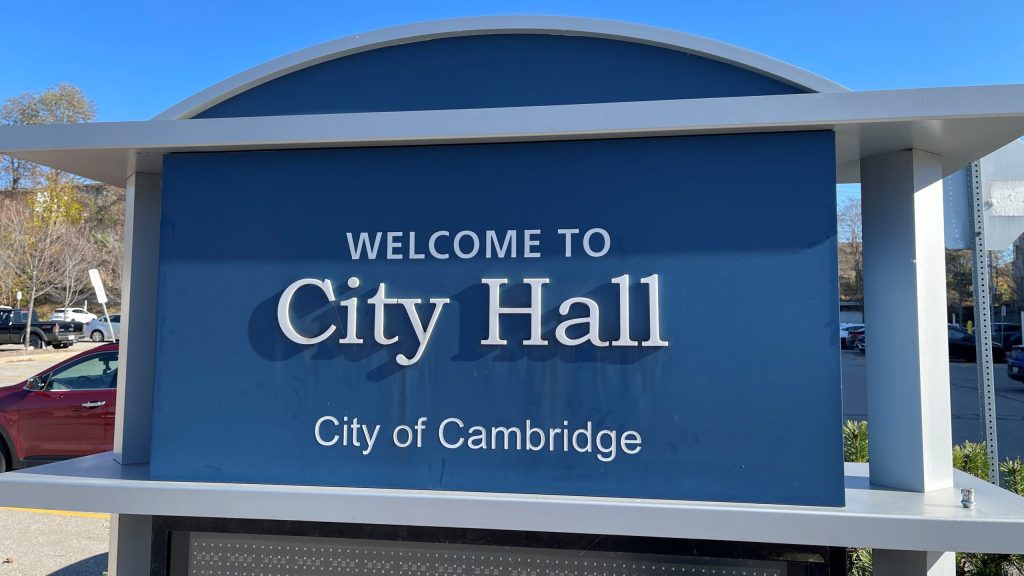Tragically Hip frontman Gord Downie dead at age 53
Posted Oct 18, 2017 08:51:45 AM.
Last Updated Oct 18, 2017 10:44:50 AM.
This article is more than 5 years old.
He was on a fishing trip. In the remote north, in a land where the many not born there dare not go. Where some get lost. Where some go to get lost.
Days earlier, this quiet man had held much of the entire nation rapt, millions watching as he summoned all his strength to tackle his terminal condition, to fend back—however briefly—the inevitability of death. To testify one more time. It would turn out to be the last show of his band’s 30-year, multi-million-selling, award-winning career, a fate many suspected at the time.
But things were much quieter now. Just a few close friends on a starry night in front of a campfire.
There were a few others there, though, most of whom knew enough to respect the privacy of the cancer-stricken man who had travelled hundreds of kilometres to disappear. Nonetheless, someone piped up.
“Gord, I always wanted to ask you: how do you get the energy to make it so real every day? I think if I put myself out there like that, on the line, and make people emotionally connect with me, I feel like I couldn’t ever do it again, because I’d get bored or I just couldn’t summon the same amount of emotion. And it seems like you get up there every single time and give it!”
The man slumped a bit. Paused. Then he got up, silently, walked over to a pile of wood, picked up two logs, and returned to put them on the fire. Not a word. He stoked the fire until sparks came out. The poet whose metaphors had inspired generations of rock’n’roll fans had nothing more to say—with words, anyway.
Do the work. Create the spark. Then sit back and see what happens, because it’s not like you can control it. Sit down. Shut up until it’s time to do it again. See where those sparks land.
Gordon Edgar Downie was one of the most riveting and mystifying performers in rock’n’roll history. Anyone who managed to catch him fronting the Tragically Hip in 1985, playing covers at a roadhouse in Renfrew, Ont., could tell you that. As could anyone who watched him command 40,000 people at any given outdoor appearance during the 1990s, singing songs that were summer soundtracks for an entire generation. Video clips don’t do justice to the energy in the room generated by a performer who communicated more with a flick of the finger than anyone else’s high kicks. That’s what even newcomers discovered during the CBC broadcast of the Tragically Hip’s final show on Aug. 20, 2016, six months after Downie was diagnosed with terminal brain cancer. It was a Terry Fox story with a twist: a story where the protagonist completes his goal before the disease gets the better of him.
Downie was born on Feb. 6, 1964, in Amherstview, Ont., just slightly west of Kingston, to Lorna and Edgar, a travelling salesman turned real estate developer. Gord was the fourth of five children: older siblings Mike, Charlyn and Paula, and younger brother Patrick. Gord played goalie for Amherstview’s hockey team, which won a provincial B-level championship. His godfather was Harry Sinden, who was then a real-estate developer with Edgar, and who would go on to become the Stanley Cup-winning coach of the Boston Bruins and lead Team Canada to victory in the 1972 Summit Series against the Soviet Union.
Downie attended Kingston Collegiate Vocational Institute, a school that has also graduated the likes of John A. Macdonald, Robertson Davies, and Don Cherry. “I came from a rural area,” he once recalled. “I wouldn’t say it’s given me a stigma, but it’s something that’s always stayed with me, not actually being from Kingston.” His outsider status became part of his public identity: the poet in the bar band; the rock star slumming it with indie kids while cozying up to intelligentsia; the artist with a commercially successful cushion who thrived on continuing to challenge himself with new collaborators and varied disciplines like dance, painting, and acting. The rest of the Tragically Hip were scions of the Kingston elite—sons of doctors, deans, judges and popular teachers. Downie could at least boast that he had a family connection to hockey royalty, in Sinden.
Downie joined a punk band called the Slinks; their friendly competitors at the school were a Grade 13 group called the Rodents, featuring bassist Gord Sinclair and guitarist Robbie Baker. A young drummer in Grade 9, Johnny Fay, watched with interest. Four of those five young men played their first gig as the Tragically Hip in November 1984, in a small white room at the Kingston Artists Association. Paul Langlois, the son of the school’s gym teacher and football coach who Downie befriended in Grade 11, wouldn’t join until a year later; by that time, Downie was studying film at Queen’s (“mostly, I learned how to drink,” he said of his time there).
In the band’s first three years, they played ’60s cover songs by the Rolling Stones, Van Morrison’s Them, Otis Redding, Marvin Gaye and the Monkees. Downie’s on-stage improvisations were a principal part of the band’s appeal from day one, though he was not yet a lyricist. As original material slowly seeped its way into the set, it was the other Gord, Sinclair, who wrote most of the lyrics. It wasn’t until the 1991 release of the band’s second album, Road Apples, that Downie seized the lyrical reins entirely.
The Tragically Hip released their first EP in December 1987; a year after that, they headed down to Memphis to record 1989’s Up to Here—which would become one of two Hip albums to eventually sell more than a million copies in Canada. They tapped into rock’n’roll’s primal energy in ways that had been largely forgotten by the late ’80s: they were a dressed-down, no-frills roadhouse bar band whose videos were rejected by MTV, a band whose sound was far removed from the era’s pop stars, stadium rock, hair metal, aging Boomers, newer bluesy bands—even from alternative icons like R.E.M. or somewhat similarly minded mainstream artists like John Mellencamp. They were too traditional and aspirational to be punk or “alternative,” and yet they were raw enough that they immediately stood out on any mainstream radio playlist. But neither video nor radio was responsible for the band’s rapid ascent: it was their live performances, where Downie’s unusual charisma electrified everyone who piled into either biker bars or student pubs to see them.










